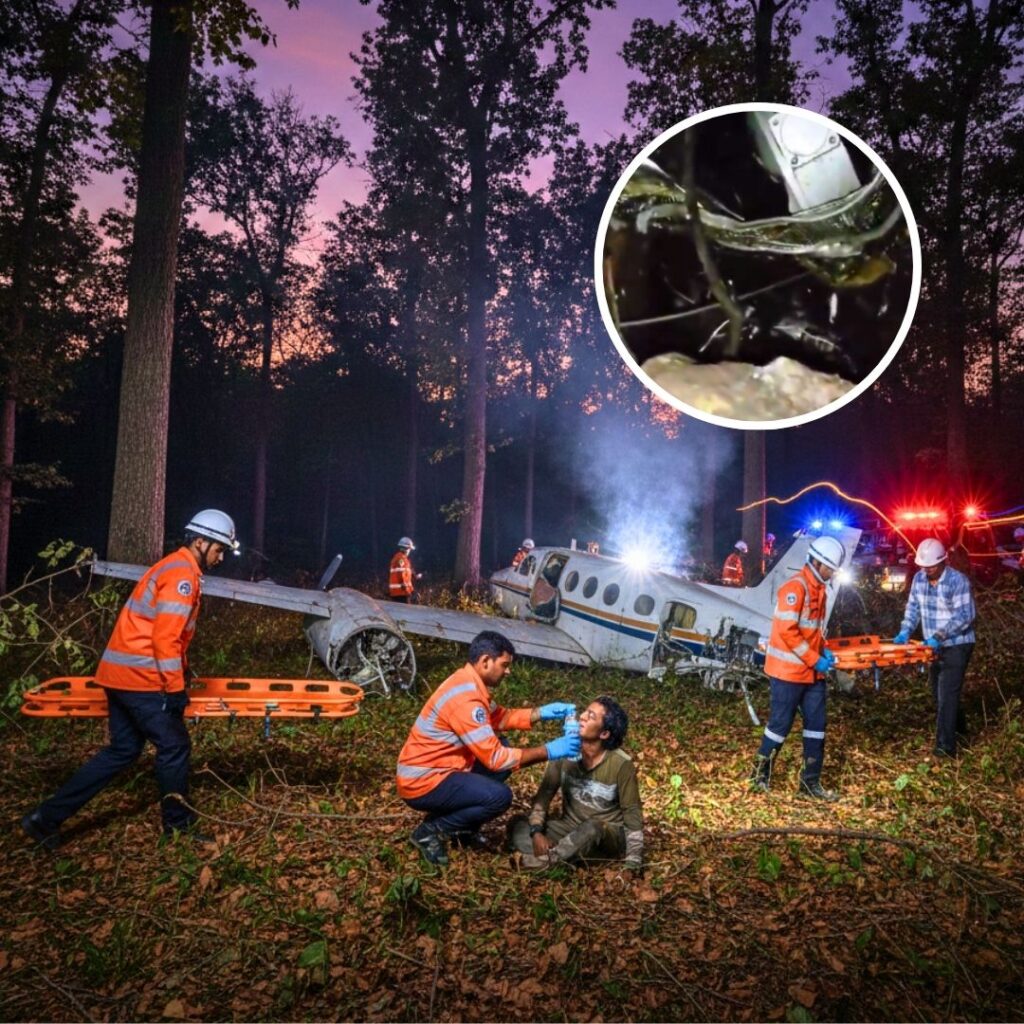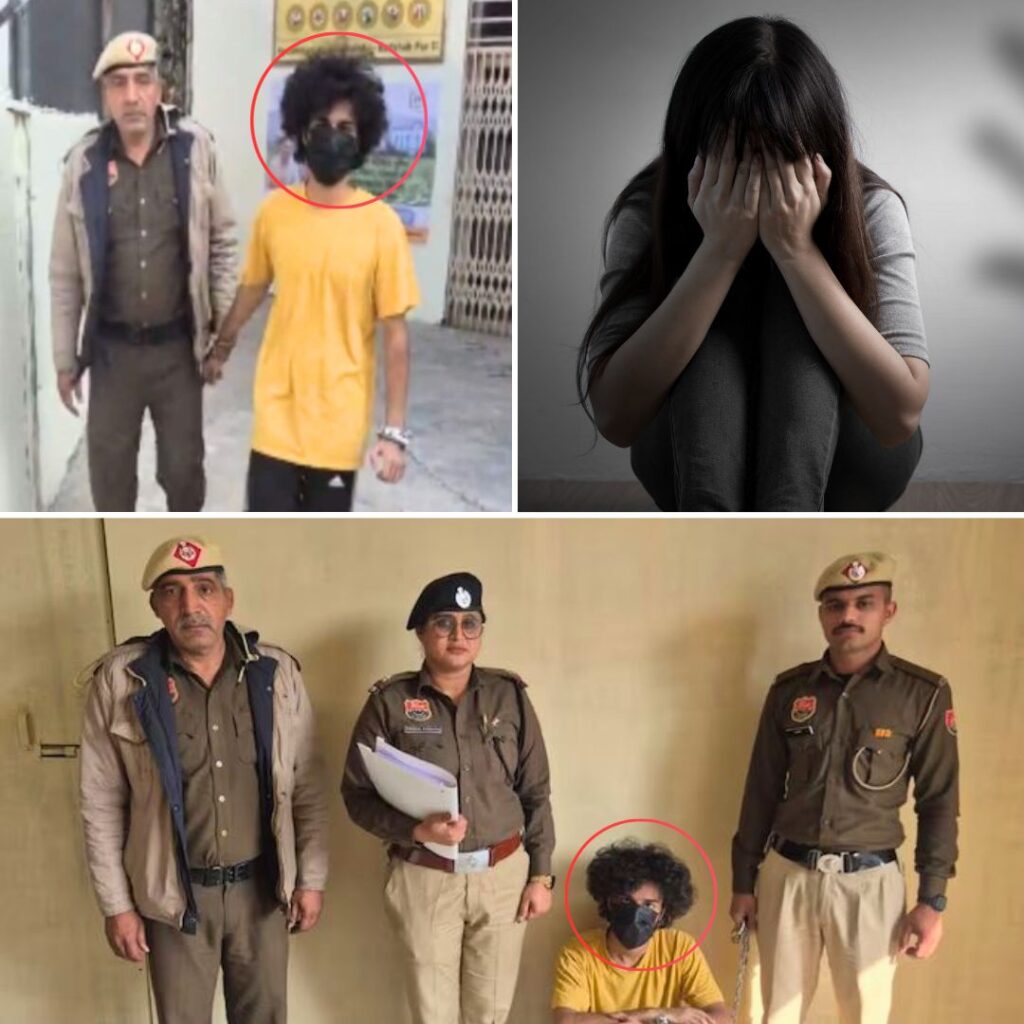In a shocking incident from Jashpur district, Chhattisgarh, Mangrita Bhagat allegedly murdered her husband Santosh Bhagat, 43, with an iron hammer following a heated argument.
She concealed his body inside a red trolley suitcase wrapped in a blanket and confessed the crime over phone to her daughter.
The daughter and her husband alerted family and police. Police recovered the body at their home and registered a murder case under the Bharatiya Nyaya Sanhita (BNS).
The accused fled to Mumbai where authorities are conducting a manhunt. Investigations are ongoing, with forensic analysis and inquiries into family tensions central to the case.
The Crime and Immediate Response
The tragic incident unfolded in the village of Bhinjpur in Jashpur district. Mangrita Bhagat had recently returned from working in Mumbai, where she had been employed for some time. According to police, the couple had a history of frequent quarrels and arguments.
On the night of 7 November, tensions escalated dramatically, culminating in Mangrita striking Santosh multiple times with an iron hammer, killing him instantly. She then wrapped the body in a blanket and placed it inside a large red trolley suitcase, which she stored in their home.
Early the next morning, Mangrita shocked her middle daughter, who lives in Korba, by confessing the murder over a phone call. Disturbed and alarmed, the daughter and her husband immediately travelled to the village and informed Vinod Minj, Santosh’s brother.
Minj contacted the police who promptly arrived at the house and found the suitcase. Upon opening it, authorities discovered Santosh’s body with visible wounds, blood stains on his face and hands, and signs of a violent assault.
Jashpur Superintendent of Police Shashi Mohan Singh confirmed that a murder case was registered under the Bharatiya Nyaya Sanhita (BNS) following a complaint filed by the victim’s brother.
Singh said a special police team was dispatched to Mumbai to trace and apprehend Mangrita, who fled after the crime. “The exact motive will be established after the accused is located and questioned,” he added.
Family Background and Investigation Highlights
Neighbours and family members described a troubled marital relationship marked by repeated disputes. The couple lived separately in the village, and Mangrita had returned from Mumbai only days before the murder.
The victim’s brother Vinod Minj revealed that Santosh and Mangrita had three grown-up children who live elsewhere. The daughter who received the confession call is 23 years old and resides in Korba with her husband.
Police are conducting forensic examinations to determine the detailed cause of death and the sequence of events. The post-mortem report indicated excessive bleeding from Santosh’s nose and mouth, with the fatal injury inflicted by a sharp, heavy blow to the forehead.
Investigators are reviewing mobile phone records, household evidence, and interviewing family members to piece together the motive and timeline.
The police stress the importance of locating the accused quickly to understand underlying factors that led to the violent act. They express concerns about possible mental strain or sudden rage following prolonged domestic tension. Authorities have appealed to the public for any information regarding Mangrita’s whereabouts in Mumbai.
Social Context and Community Impact
The case has sent ripples through the small village community, which is described as shaken and saddened by the violent domestic episode. Locals who knew the family express regret that tensions escalated beyond reconciliation.
The incident highlights broader societal challenges, including the difficulties some women face balancing work, family responsibilities, and strained marital relations.
Domestic violence and mental health remain pressing but often overlooked issues in rural areas of India. The Logical Indian recognises this case as a tragic reminder of the need for better access to counselling, conflict resolution resources, and social support networks that can offer intervention before disputes turn fatal.
The Logical Indian’s Perspective
Such harrowing incidents compel us to reflect deeply on our social fabric and the vital role of empathy, communication, and mental well-being in nurturing peaceful families.
The Logical Indian urges communities and policymakers to prioritise creating safe spaces for dialogue, accessible counselling services, and public awareness to address domestic stress constructively.
Violence should never be the answer, and early intervention is key to preventing such tragedies.












